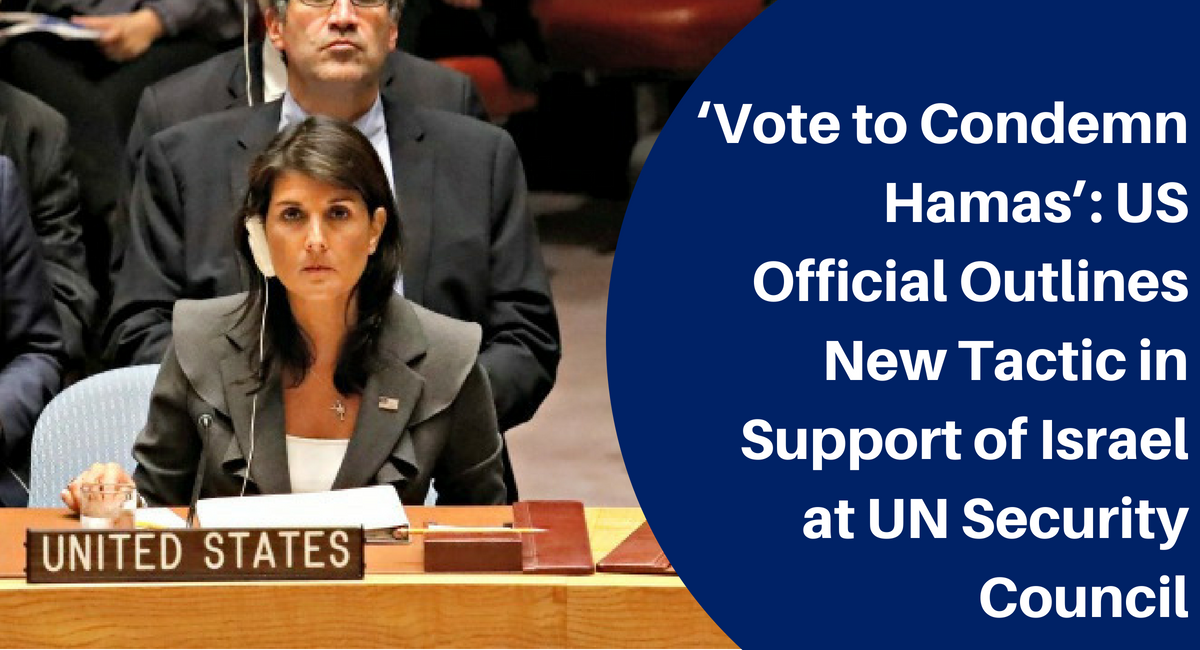
‘Vote to Condemn Hamas’: US Official Outlines New Tactic in Support of Israel at UN Security Council

On June 1, the UN Security Council found itself in the unprecedented position of having to vote on competing resolutions concerning the latest round of violence on the Israel-Gaza border.
Unprecedented, because for the first time, the council — the UN’s supreme body — was asked to vote on a draft, submitted by the United States, that condemned Hamas for orchestrating the confrontations around the “March of Return.”
At the same time, the council was also asked to vote on a draft submitted by Kuwait, one of its nine non-permanent members, that placed all the blame for the violence on Israel. In the end, both drafts were defeated, the Kuwaiti text by the US exercising its veto, and with four countries — The Netherlands, Poland, Ethiopia and the UK — abstaining. The American-supported text was opposed outright only by Bolivia, Kuwait and Russia, with the remaining eleven members of the Council deciding to abstain.
Commenting on last week’s vote, an official at the US mission to the UN stated that it was “telling that 11 countries chose to abstain, and only three chose to embrace the Hamas position.”
“There was a great deal of discomfort among those 11 nations about having to abstain on whether they consider Hamas activity to be terrorism,” the official observed, as part of a wider discussion with The Algemeiner on Tuesday examining the more proactive strategy in support of Israel that US Ambassador Nikki Haley is rolling out at the UN.
At the heart of that strategy, the official explained, is the willingness to submit resolutions to the UN Security Council that underline Israel’s right to defend itself, or that spotlight American and Israeli adversaries, such as Iran, its Lebanese proxy Hezbollah, and Hamas.
Historically, the US has “typically” wielded its veto in defense of Israel at the Security Council, the official said — though even then, over 200 resolutions concerning Israel, the majority of them openly critical of the Jewish state’s actions, have been approved by the body since 1948.
“When this Kuwaiti resolution was being discussed last week, we had the option of doing what the US has usually done, which is to veto a one-sided, biased, anti-Israel resolution, and then just call it a day,” the American official said.
But, the official continued, “what happens when you take that position is the countries taking an anti-Israel stance, they essentially get a free pass.”
Read More: Algemeiner
